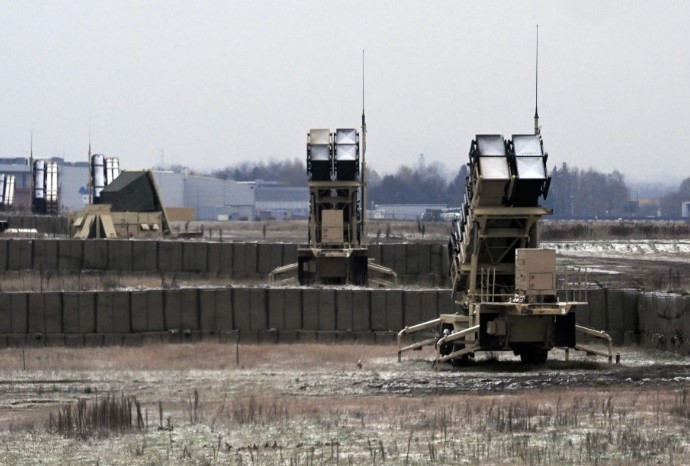Europe Balances Urgency and Risk in Trump’s Missile Deal
A high-stakes missile deal between Donald Trump and European NATO countries to send Patriot systems to Ukraine has sparked concern across Europe. While the plan helps Ukraine defend against Russian air attacks, European nations fear delays in getting U.S. replacements could leave their own defenses exposed.
Under the deal, countries donate their Patriots to Ukraine in exchange for new U.S. systems. But many worry the replacements won’t arrive quickly. President Zelenskyy, who has long requested more Patriots, recently said Ukraine needs 10 additional batteries.
So far, Ukraine has received six operational Patriot systems. These came from the U.S., Germany, Romania, and the Netherlands. But these donations have already reduced the number of Patriots in European stockpiles. Countries are now facing difficult decisions—support Ukraine or risk their own national security.
Six European nations currently operate Patriot missile systems: Germany, Greece, the Netherlands, Poland, Romania, and Spain. Altogether, they own about two dozen systems. But previous donations have made many hesitant to part with more.
A senior European diplomat said, “Giving up Patriots is scary. You do it for Ukraine, because they defend us.”
🛡️ Norway turbocharges Ukraine’s missile shield—Patriot systems fast-tracked with Germany
Germany is leading the latest donations but agreed to send more only after the U.S. guaranteed new systems would arrive within eight months. This cleared the way for additional German systems to reach Kyiv soon.
Switzerland, which ordered Patriots in 2022, will face delays as Germany gets priority. Berlin has already sent three systems and promised five more, but with just six left—two stationed on NATO’s eastern flank—it’s a tight situation.
Demand Outpaces Supply as More Nations Join the Missile Deal
Several other countries have also agreed to join the missile deal. Norway and the Netherlands have told Ukraine they are ready to contribute systems under Trump’s proposal.
The U.S. ambassador to NATO, Matthew Whitaker, said that the U.S. is reviewing its own inventory and looking at what its defense sector can provide. He said that supplying Ukraine is now a top priority.
But experts say one big issue remains: deciding which countries should be first in line to receive new Patriot systems. Trevor Taylor, a defense expert at the Royal United Services Institute in London, says the U.S. president makes those decisions.
🔥 NATO ramps up weapons flow to Ukraine as Trump warns Russia — Kremlin says it’s not afraid
Even though officials have made promises, many now doubt how quickly the U.S. can deliver. Romania, for example, gave up one of its only two operational Patriots in 2023. The country had hoped to get new systems quickly, but after months of waiting, the U.S. confirmed that the replacements wouldn’t arrive until nearly 2030.
This long delay is not unusual. NATO’s Supreme Allied Commander Transformation, Admiral Pierre Vandier of France, estimates that it can take up to seven years to deliver new Patriot systems.
One insider source was slightly more hopeful, suggesting the wait time might be cut down to two or three years—but even that is a long time for countries that urgently need these defenses. The missile deal has thus created a tense situation, with Europe trying to help Ukraine without weakening its own defense structures.
Industry Struggles to Keep Up with Global Demand
The companies that manufacture the Patriot systems—Raytheon and Lockheed Martin—are struggling to keep up with skyrocketing global demand driven by this missile deal.
Right now, they are producing about 500 Patriot missiles each year. They are working to increase that number to 650 annually. Raytheon has committed to boosting the production of a newer type of missile, the GEM-T interceptor, by 150% by the year 2028.
A spokesperson for Raytheon said that the company is investing nearly $1 billion to speed up production. This includes buying materials in advance and expanding manufacturing for critical parts like radars.
📜 Patriots in, sledgehammer sanctions next: Trump’s Ukraine strategy shifts into overdrive
However, like many industries, Raytheon is facing supply chain problems. The company’s air defense division head said that one major issue is getting access to special materials known as “energetics,” which are used in missile engines and warheads.
As production struggles continue, countries like Germany, Romania, and the Netherlands are watching closely. Their ability to support Ukraine—and still protect their own airspace—depends on whether U.S. companies can deliver replacements quickly enough.
Meanwhile, the stakes remain high. Russia continues its intense aerial attacks on Ukraine, and every additional Patriot system from this missile deal could mean fewer lives lost and less destruction. But for European countries, the fear of being left unprotected is just as real.
